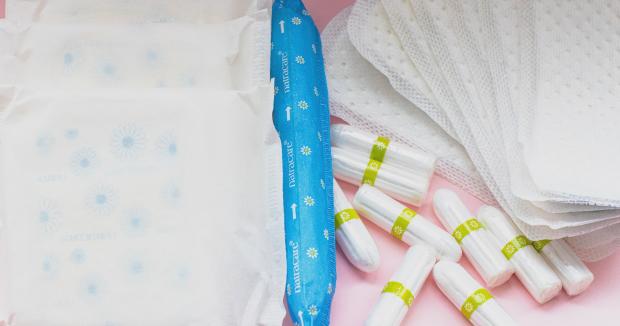5 Questions about Your Period, Answered

Periods can be complicated.
If you have a menstrual period, it’s probably an annoyance you’d prefer not to think about. Our period can be one of those facts of life we tend to live through without giving it much consideration. But it’s good to check in on the period questions we may forget to ask our providers. Here are five questions about your period, answered—because more information about your body is always a good thing. For answers to your more specific questions, as well as which methods of birth control can help you manage your period, make an appointment to visit your nearest The Right Time health center.
Is it normal to bleed between periods?
Many menstrual periods last between four to seven days, but some people may experience bleeding between their monthly periods. You can use a tampon to be sure the blood is coming from your vagina. A light amount of blood should not cause much concern. But you should see your provider if you have heavy bleeding between your periods.
When should you see a provider about period pain?
Everyone experiences menstrual cycles and premenstrual cramps differently, with varying heaviness of blood flow and intensity of cramping. But you know your body best. If your period regularly causes you enough pain to interrupt your day-to-day activities, or if your cramps progressively become severe, that’s when you should see a provider.
Should my period blood smell?
To answer this question, remember that “period blood” isn’t just blood: it’s a mix of blood and tissues. On its way out of your body, it mixes with your vaginal mucus and naturally occurring bacteria that may produce a slight odor. That’s totally normal. Your menstrual period might smell slightly metallic to you because of the iron in your blood. However, if it smells like there’s something fishy going on down there, bacterial vaginosis might be the culprit.
What’s my risk of Toxic Shock Syndrome when using tampons, pads, or menstrual cups?
Toxic Shock Syndrome (TSS) is a rare, but serious condition that can be caused by two kinds of bacteria: Staphylococcus aureus and Group A Streptococcus. The bacteria can grow on period products (most commonly tampons), and cause toxins to enter the bloodstream. However, reports have shown that menstrual cups are very rarely associated with cases of TSS, and sanitary pads provide the lowest risk.
You can lower your risk for TSS by changing pads every 3 to 4 hours, by changing your tampons every 4 to 8 hours, or by emptying and cleaning your menstrual cup every 10 to 12 hours. And be sure to wash your hands well no matter which period product you prefer.
Can you have sex on your period?
You can absolutely have sex during your period if you don’t mind getting a little messy. It is possible, although less common, to get pregnant from having sex during your period, so you should still use a condom or another method of birth control.
If you have a question about your period that we didn’t cover here, you can make an appointment to talk to a provider at your nearest The Right Time health center. As we mentioned above, if your period is interrupting your day-to-day activities, you can ask about what methods of birth control might help make your period a little less painful.
Updated September 2021
Related Content


Article
What Does “Dual Protection” Birth Control Mean?It usually means using a condom along with another birth control method.

Article
January is Cervical Cancer Awareness Month: What to Know About HPV and ScreeningA positive HPV test can feel scary, but healthcare providers at your nearest The Right Time clinic can help.

Article
Own Your Well-Being in 2026 with These 3 Sexual Health ResolutionsFirst: prioritize preventative sexual and reproductive health care.



















